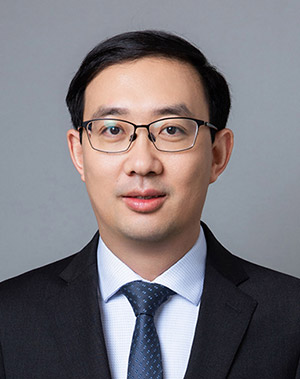
Chemistry

Prof. Zuo Zhiwei earned his bachelor's degree from the School of Chemistry and Chemical Engineering at Nanjing University in 2007, under the supervision of Professors Zhu Chengjian and Cheng Yixiang. He completed his Ph.D. at the Shanghai Institute of Organic Chemistry, Chinese Academy of Sciences, in 2012, under the guidance of Prof. Ma Dawei. From 2013 to 2015, he conducted postdoctoral research at Princeton University under the supervision of Prof. David W. C. MacMillan. In 2015, Dr. Zuo embarked on his independent research career at Shanghai Tech University, where he made significant contributions until 2020, when he joined the State Key Laboratory of Organometallic Chemistry at the Shanghai Institute of Organic Chemistry, Chinese Academy of Sciences. His research predominantly revolves around the cutting-edge realms of photoredox catalysis, with a specialized emphasis on the intricate art of selectively functionalizing feedstock chemicals and advancing disruptive synthesis methodologies for the production of essential fine chemicals and pharmaceuticals. He has received support from various prestigious projects, including the Overseas High-Level Talents Program, the Hundred Talents Program of the Chinese Academy of Sciences, and the National Science Fund for Distinguished Young Scholars. Prof. Zuo has been honored with several awards, including the title of Academic Leader (Youth) in Shanghai, the 11th Shanghai Youth Science and Technology Talent Award, the Shanghai Youth May 4th Medal, the Huang Yaozeng Youth Award in Organometallic Chemistry, the Youth Scientist Award from the Chinese Academy of Sciences, and the 10th Chinese Chemical Society-Royal Society of Chemistry Young Chemist Award. He is actively engaged in the academic community, serving on the Young Advisory Board for "Organic Chemistry" and "ACS Catalysis," as well as the Advisory Board for "Chem Catalysis."
LMCT catalysis for selective functionalizations of strong bonds
The selective activation and functionalization of inert C–H and C–C bonds pose significant challenges in synthetic chemistry. The development of efficient and highly selective catalytic strategies holds paramount importance for sustainable organic synthesis. Addressing obstacles such as the high bond dissociation energy and weak polarization of inert C–H bonds, Professor Zuo pioneered a novel photocatalytic strategy based on ligand-to-metal charge transfer excitation (LMCT catalysis). This innovative catalytic mode seamlessly integrates selective hydrogen atom transfer processes, thereby opening new avenues for the selective transformation of inert sp3 C–H bonds. Notably, it marks the first reported photo-induced conversion of feedstock alkanes like methane into high-value-added products such as amines and esters under ambient conditions. This achievement confronts the recognized challenges in C–H activation reactions and challenges the conventional paradigm that rare earth metal cerium cannot activate inert C–H bonds. Moreover, it has paved the way for the high-value upgrading of hydrocarbon resources, with the catalytic strategy being adopted by numerous domestic and international laboratories, including research groups at the University of Pennsylvania, thus spearheading advancements in this domain. Furthermore, in addressing hurdles like the reliance of inert C–C bonds on bond strain or directed auxiliary activation, a synergistic strategy combining LMCT catalysis and radical-mediated C–C bond scission has emerged. This collaborative effort has established a novel catalytic platform for non-strained C–C bond cleavage transformation, enabling stereoselective bond breaking and reconstruction processes to achieve deracemization of alcohols for the first time. Notably, it has overcome the previous limitations of deracemization reactions, extending its applicability to continuous and quaternary carbon stereocenters, and has revealed the multiplicative enhancement of the stereoenrichment effect in asymmetric catalysis.